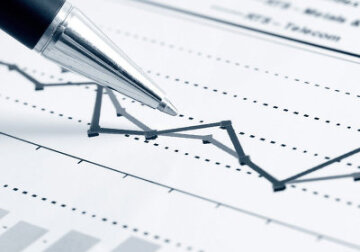
Expert-Grup gave a number of recommendations that would protect the population's incomes and curb the further growth of inflation in Moldova.
The program director of the Independent Think-Tank Alexandru Fală analyzed the reasons of inflation growth in Moldova, identified the most vulnerable categories of population and presented a number of recommendations for curbing further inflation growth. The expert stated that in January-April 2022 the consumer price index in Moldova increased by 21.1%, while in most European countries inflation did not reach 10%. At the same time, according to him, most countries in Europe will face a strong inflationary wave in 2022, but the price increase in Moldova will be much more pronounced. Alexandru Fală explains the high inflation rate in Moldova primarily by the strong rise in global inflation, which led to higher import prices. The prices of energy, vegetable and animal oils, wood, metals, food, etc. went up, as well as the cost of imports from Belarus, Ukraine and Russia. The expert noted that inflation affects the poverty level in Moldova, with urban households, as well as people with low and middle incomes, being most affected by the current rise in inflation. The expert believes that the government's actions to support the incomes of the population were timely and had some effect. However, the ongoing administrative measures against business (ban on exports of some goods or cancelation of VAT deduction), although they can slow the price increase, create uncertainty for business. The expert considers the actions of the National Bank of Moldova (NBM) adequate, but notes the ineffective relationship between the NBM and the government, which contributes to the uncertainty. At the same time the expert thinks that the government should go on with implementation of support measures for population with low income and pay more attention to providing targeted assistance and compensations to vulnerable categories of population. It is also necessary to develop statistical tools which would allow the government to quickly obtain real information about the production and stocks of agricultural products and only then make decisions which ensure food security, but which have a negative effect on exports. Alexandru Fală recommends strengthening cooperation between institutions responsible for economic issues (government, NBM, Ministry of Finance, Ministry of Economy) and to exclude the political aspect from this process. In this context, in his opinion, it would be advisable to expand the activity of the Financial Stability Committee. The expert also draws attention to the important role of foreign aid: in addition to the actual support of the budget it will finance social programs, promote strengthening of energy independence and efficiency, modernization of infrastructure, which in general will increase the country's resistance to various shocks. // 09.06.2022 – InfoMarket







